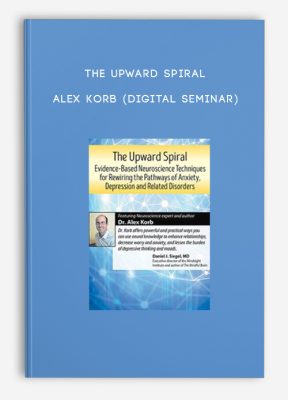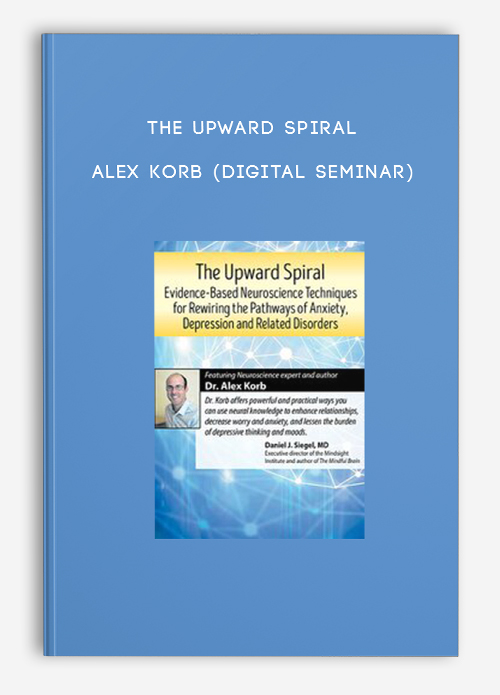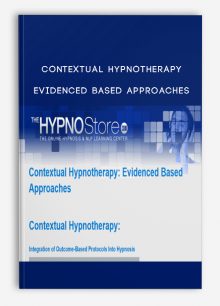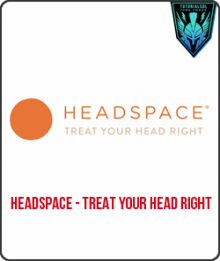Subtotal: $95.00
The Upward Spiral – Alex Korb (Digital Seminar)
$219.00 $65.00

The Upward Spiral – Alex Korb (Digital Seminar)
Sale Page
Get The Upward Spiral – Alex Korb (Digital Seminar) on Salaedu.com
Description:
Early in my career, I recognized a disconnect between neuroscience research and popular treatment strategies. While depression and anxiety are clearly rooted in altered brain function, most clinicians were not taught about specific neural circuits and neurotransmitters that contribute to these disorders. As a result, treating mood and anxiety disorders were often incomplete – many solutions uncovered by research were overlooked and strategies relied heavily on medication without any changes in a client’s action, activity and environment. There had to be a better way to treat these clients and improve outcomes!
Today, I know that using proven cognitive-behavioral interventions like Acceptance and Commitment Therapy (ACT), Mindfulness-Based Cognitive Therapy (MBCT), and Behavioral Activation Therapy (BAT) in conjunction with exercise, social support and positive habits yields powerful therapeutic effects. Expanding your tool kit of brain-based interventions allows you to accommodate your clients’ different challenges. And, when your clients understand that what feels “wrong” is actually the activity and chemistry of particular brain circuits, it improves treatment buy in and compliance.
Watch this must attend conference and I will show you how to put the power of neuroscience to work for you and your clients:
- Utilize brain-based cognitive therapies like ACT, MBCT, and BAT for mood and anxiety disorders
- Apply new techniques informed by the latest neuroscience research to improve treatment outcomes
- Discover how simple interventions modulate the activity and chemistry of key brain regions
- Learn how to teach clients about their brain
Are you ready to expand your treatment tool box with the latest in neuroscience techniques?
Let me help you take your practice to the next level. Your satisfaction is guaranteed. Purchase today!
See you there,
Dr. Alex Korb
Outline:
- Analyze findings from neuroscientific research exploring the connection between key brain regions, neurotransmitters, and mental health.
- Communicate how understanding neurobiological processes can help clinicians establish realistic goals with clients and engage them in therapy.
- Explore the role of the amygdala in stress and anxiety and communicate how labeling feelings and mindful awareness of emotions can be used to manage symptoms.
- Characterize how habits relate to stress and connect this information to cognitive behavioral approaches that intervene in habit loops and reduce stress related symptoms.
- Establish how neuroscience informed explanations of mental health disorders can bring objectivity into your discussions with clients and shift the way they feel about their pathology.
- Assess the latest scientific research on gratitude and characterize the potential benefits and research limitations found in these studies.
Understand the Key Brain Regions and Chemicals Involved
- Prefrontal cortex, limbic system, striatum
- Neurotransmitters: serotonin, dopamine, norepinephrine, oxytocin, etc.
- How it all fits together
Key Principles From Proven Cognitive-Behavioral Interventions
- Behavioral Activation Therapy (BAT)
- Acceptance and Commitment Therapy (ACT)
- Mindfulness-Based Cognitive Therapy (MBCT)
Utilize the Benefits of Exercise
- Benefits on serotonin and dopamine systems, as well as stress reductions
- Intensity and frequency of exercise required
- How simply being outdoors can help
Minding the Amygdala: Mindful Awareness of Emotions
- Labeling feelings to reduce amygdala activity
- Making the most of ACT to reduce stress
Set Goals, Make Decisions, and Top-Down Regulation of Brain Activity
- The impact of goal-setting on lower-level processing
- Choice, decisions and happiness
- The importance of intention and voluntary choices
- Simple strategies for applying BAT
Low-Tech Biofeedback
- The mind-body connection, meditation and MBCT
- Understanding heart-rate variability
- The power of breathing
- How postural changes, muscle tension and facial expressions can affect mood
How the Brain Encodes Habits and How to Change Them
- The distinction between impulses and routines
- Cognitive and emotional habits
- The relationship between habits and stress
- Cognitive-behavioral approaches to changing habits
Social Solutions
- The impact of social support on the brain’s stress response
- The power of physical touch
- Why social interactions are rewarding
- How social support can improve the efficacy of medication
The Power of Gratitude
- The impact of gratitude on key neural circuits
- How to operationalize gratitude in order to implement it in daily life
Make the Most of Sleep
- How sleep affects mood
- Key changes in sleep hygiene that improve sleep quality
The Limitations of Neuroscientific Research
- fMRI imaging
- Things to consider regarding animal studies
- Simple explanations for complicated processes
NLP online course
So what is NLP?
NLP stands for Neuro-Linguistic Programming. Neuro refers to your neurology;
Linguistic refers to language; programming refers to how that neural language functions.
In other words, learning NLP is like learning the language of your own mind!
NLP is the study of excellent communication–both with yourself, and with others.
It was developed by modeling excellent communicators and therapists who got results with their clients.
NLP is a set of tools and techniques, but it is so much more than that.
It is an attitude and a methodology of knowing how to achieve your goals and get results
More Course: NLP – HYPNOSIS – PHILOSOPHY
Outstanding Course:Mentors in Hypnosis DELUXE Collection
1 review for The Upward Spiral – Alex Korb (Digital Seminar)
Add a review Cancel reply
Related products
HYPNOSIS - NLP Courses
HYPNOSIS - NLP Courses
HYPNOSIS - NLP Courses
HYPNOSIS - NLP Courses
HYPNOSIS - NLP Courses
HYPNOSIS - NLP Courses
Doña Eugenia Pineda Casimiro – The Healing Potential of Sacred Mushrooms

 K.P. Khalsa - The Path of Ayurvedic Herbalism
K.P. Khalsa - The Path of Ayurvedic Herbalism 







king –
We encourage you to check Content Proof carefully before paying.
“Excepted” these contents: “Online coaching, Software, Facebook group, Skype and Email support from Author.”
If you have enough money and feel good. We encourage you to buy this product from the original Author to get full other “Excepted” contents from them.
Thank you!